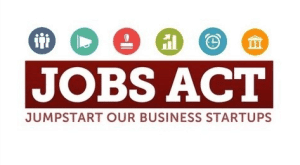I have written about the misconception by some members of the general public that equity crowdfunding and rewards-based crowdfunding are the same thing. Many people are misinformed and do not understand that Title III of the JOBS Act has nothing to do with rewards-based crowdfunding. If you don’t believe me, read some of the comments to the SEC where comment writers were unnecessarily worried that equity crowdfunding would kill Kickstarter and its ilk.
… if Title III had been available to Oculus to use “equity crowdfunding” two years ago, it is interesting to think about what could have happened.
The public outcry over this non-issue reached a fever pitch recently when Facebook paid $2 billion to buy Oculus, a technology company into virtual reality video gaming. A couple of years ago, Oculus used Kickstarter to crowdfund the Oculus Rift virtual reality headset. On Kickstarter, Oculus crowdfunded almost $2.5 million from nearly 10,000 donors, making the campaign one of the most successful in rewards-based crowdfunding history. The donors to this campaign received items like posters, T-shirts and, for larger donations, a developer kit that for game developers. Nobody thought they were buying stock in Oculus when they contributed to this crowdfunding campaign, and if Oculus had tried to sell stock, they would have been breaking the law because Title III equity crowdfunding is not yet legal.

When Facebook bought Oculus for $2 billion, many people took to social media to start complaining. There was a good deal of misunderstanding from people (most of whom were not actually backers of the Kickstarter campaign) who could not understand why the people who gave their hard-earned money to Oculus were not sharing in the wealth of the Facebook windfall. These misguided people could not understand why a $15 donation to Oculus only got the donor a poster and a thank you, and not shares of Oculus stock and a lottery-like payoff from the Facebook buyout.
Of course, this is nonsensical and nobody who contributed to the Oculus rewards-based crowdfunding campaign expected to own a piece of the company. But, if Title III had been available to Oculus to use “equity crowdfunding” two years ago, it is interesting to think about what could have happened. Let’s pretend for a moment that the SEC rules were in effect at that time, and Oculus had the option when they did their Kickstarter campaign of selling stock through an equity crowdfunding portal instead.
 Oculus would have had to comply with all of the disclosure and due diligence required of Title III equity crowdfunding. They would have had their officers, directors and all shareholders with 20% ownership or more go through “Bad Actor” background checks. To raise more than $500,000, they would have disclosed audited financial statements. They would have disclosed a business plan. After handling all of this compliance, they would have been allowed to sell shares in their company online through equity crowdfunding. But, they would have been capped at selling $1,000,000 in stock under the JOBS Act.
Oculus would have had to comply with all of the disclosure and due diligence required of Title III equity crowdfunding. They would have had their officers, directors and all shareholders with 20% ownership or more go through “Bad Actor” background checks. To raise more than $500,000, they would have disclosed audited financial statements. They would have disclosed a business plan. After handling all of this compliance, they would have been allowed to sell shares in their company online through equity crowdfunding. But, they would have been capped at selling $1,000,000 in stock under the JOBS Act.
Let’s assume Oculus would have actually jumped through all of those hoops, rather than just saying “Hey, let’s do a Kickstarter project where we don’t have any of those disclosure requirements, no due diligence, and we are not capped at $1 million.” If Oculus had offered, say, 10% equity in their company for $1,000,000 through an equity funding portal to the crowd in $1,000 shares, that would have meant 1,000 lucky people could have invested in the company. Assuming no dilution occurred, and making a whole lot of other assumptions that have no reasonable basis in fact, those investors would have shared 10% of the Facebook money or $200 million. Roughly translated under this fanciful scenario, a $1,000 investment would have been worth $200,000 in the Facebook buyout.
This is why people are excited about the prospect of Title III equity crowdfunding. Try getting that kind of return on Wall Street.
The truth is very few startup companies who use equity crowdfunding when it is legal will provide this huge of a return for investors. In fact, a good number of startup companies will fail and the investment will be completely lost in each of those cases. Investing is startup businesses is very risky. There is a big payoff when a startup is very successful, and a large downside when the startup fails. People should invest in startups with their eyes wide open, and only after doing their due diligence and appropriate research.
 That being said, the Oculus-Facebook deal is, in my opinion, the best ad for equity crowdfunding that I have seen. Instead of printing misleading editorials in the New York Times and Bloomberg using the Oculus deal as an example of why crowdfunding is bad for investors (which is idiotic because none of the Oculus Kickstarter backers are “investors”) the media should be using this buyout as a prime example of how great equity crowdfunding could be for the economy. If Title III were in place and legal when Oculus decided to go crowdfunding on the internet, many people could have received a huge financial benefit from investing in the company. But, because the SEC rules were still in limbo at the time (and still are as I write this), so the only people who benefitted from the buyout were the founders and other owners of Oculus shares. Instead, some of the media has fanned the flames by claiming “investors” were taken advantage of by Oculus, and even proposing that more restrictions should be placed on equity crowdfunding to “protect investors.”
That being said, the Oculus-Facebook deal is, in my opinion, the best ad for equity crowdfunding that I have seen. Instead of printing misleading editorials in the New York Times and Bloomberg using the Oculus deal as an example of why crowdfunding is bad for investors (which is idiotic because none of the Oculus Kickstarter backers are “investors”) the media should be using this buyout as a prime example of how great equity crowdfunding could be for the economy. If Title III were in place and legal when Oculus decided to go crowdfunding on the internet, many people could have received a huge financial benefit from investing in the company. But, because the SEC rules were still in limbo at the time (and still are as I write this), so the only people who benefitted from the buyout were the founders and other owners of Oculus shares. Instead, some of the media has fanned the flames by claiming “investors” were taken advantage of by Oculus, and even proposing that more restrictions should be placed on equity crowdfunding to “protect investors.”
Where are the media people when the elderly on fixed incomes are taken by the busload into casinos around the country? Why are they not proposing that, before grandma enters a casino, she has to prove her net worth at the door and then be limited as to how much she can gamble in the slot machines? Should grandpa have to show his bank statement at the convenience store and then be limited on how many lottery tickets he can buy? Why is the media not proposing limits on how much can be gambled, if they truly want to economically limited “investors” from losing money?
The Oculus deal shows why equity crowdfunding will be a great thing that could revitalize the American economy. Small businesses and entrepreneurs will be able to raise money, start and grow businesses, and create jobs. And, someday some of those businesses will be bought out for billions, and then equity crowdfunding investors will reap the rewards. Some day hopefully, the media will understand.
 Kendall Almerico is a nationally recognized crowdfunding and JOBS Act expert who has appeared in USA Today, Huffington Post, the New York Daily News, Business Insider, Fox Business Network and hundreds of newspaper, blog, radio and television interviews including CNN and The Sean Hannity Show. Almerico is also CEO of ClickStartMe, a crowdfunding site that provides individuals and businesses with an easy-to-use website to raise funds through online crowd funding. Almerico is also the founder of CrowdItForward, a charity-based crowd funding site that performs “Random Acts of Crowdfunding” and raises money for people in need through a 501(c)(3) charitable foundation.
Kendall Almerico is a nationally recognized crowdfunding and JOBS Act expert who has appeared in USA Today, Huffington Post, the New York Daily News, Business Insider, Fox Business Network and hundreds of newspaper, blog, radio and television interviews including CNN and The Sean Hannity Show. Almerico is also CEO of ClickStartMe, a crowdfunding site that provides individuals and businesses with an easy-to-use website to raise funds through online crowd funding. Almerico is also the founder of CrowdItForward, a charity-based crowd funding site that performs “Random Acts of Crowdfunding” and raises money for people in need through a 501(c)(3) charitable foundation.

